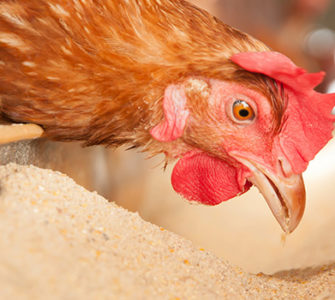Farmers told to ‘stick to guidelines’ for antibiotics as experts question conventional usage
UK farmers and veterinarians have been told to continue to follow prescription guidelines for treating animals with antibiotics after a group of health experts suggested current guidance needed to be overhauled.
An article published in the British Medical Journal said there is little evidence that failing to complete a course of antibiotics contributes to antibiotic resistance.
Written by UK experts including professors of infectious diseases and a consultant in microbiology, the article said policy makers and health experts should stop advocating ‘complete the course’ messages.
But the British Veterinary Association (BVA) warned against making any changes to the duration of dosage of antibiotics until further evidence is found to support the claims.
John Fishwick, BVA junior vice president, said the UK veterinary profession is committed to using antibiotics responsibly.
But he said it is too early to know how changing guidelines over their use would impact animal health or antibiotic resistance.
“Medicines should never be used to compensate for poor husbandry practices and routine habitual prophylactic use in healthy animals to prevent disease is a no-go,” Fishwick said.
“The article in the BMJ suggests that antibiotics should be used for as short a period as possible, and that we should move away from the concept of following a predetermined course.
“This may indeed be a very important advance, but it is far too early to determine how this would work in veterinary practice. We need to clearly establish the evidence supporting it.”
Fishwick said the BVA supports the researchers’ calls for clinical trials to determine the most effective strategies to antibiotic treatment.
But until then, it is important vets continue to prescribe as they always have done, only when necessary.
“It is also vital that clients continue to follow the directions given by their vets, both in terms of dosage and duration of treatment, carefully,” he added.
Mark Fielder, professor of medical microbiology and member of the Responsible Use of Medicines in Agriculture Alliance (RUMA), said while it is right to question science in medicine, it is important to continue best practice until proven otherwise.
“In line with the comments made by Public Health England, it is imperative for patients to follow the instructions given by their prescribing physician or pharmacist in relation to antibiotics,” he said. “The same applies to farmers and their prescribing vets.
“It is imperative that the full course of antibiotics is used following culture and sensitivity testing to ensure that the drug has had the opportunity to act against the invading organism and achieve the best outcome.
“This will also help in the prevention of resistance development as if the correct antibiotic is prescribed and administered in the most appropriate way, then it follows that there is the best opportunity for the organism to be killed, dead organisms do not mutate and so develop resistance.”
Posted on September 17, 2017
















